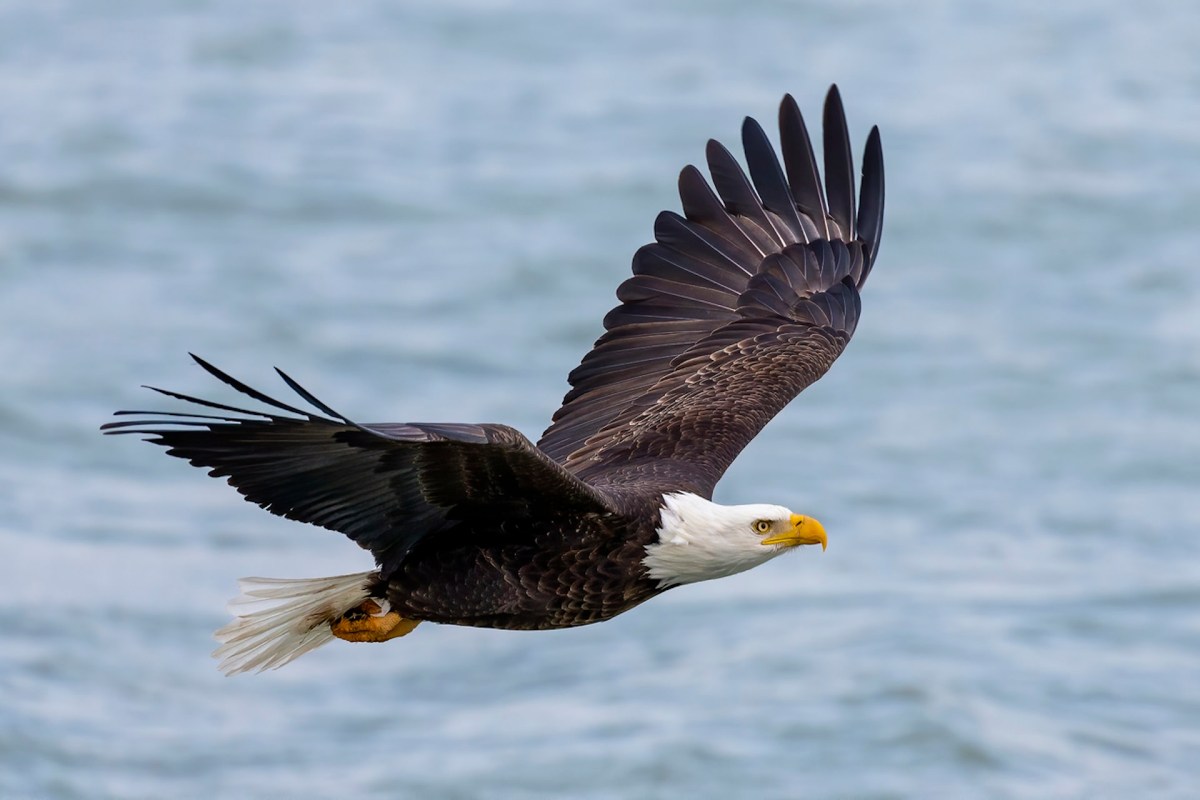Bald eagles were happily removed from the endangered species list in 2007, but the actions of two men recently served as a reminder that toxic chemicals aren't the only hazards facing protected species.
What happened?
According to NPR, Travis John Branson and Simon Paul were charged in federal court after "knowingly and willfully" choosing to shoot approximately 3,600 birds, including bald eagles, over a six-year span in Montana.
Court documents reportedly reveal Branson was after the eagles' tail feathers, and he told others he was going "on a killing spree."
The men's actions violated multiple conservation laws, including the Bald and Golden Eagle Protection Act passed in 1940, leading to 13 charges of unlawful trafficking of bald and golden eagles, as reported by The Hill.
"We just hope that if these individuals are proven guilty that it will serve as a warning to others that we are watching," Rich Janssen, the director of the Confederated Salish and Kootenai Tribes' Department of Natural Resources, said in an AP story published by KTLA.com.
Why are bald eagles important?
Predators of all sizes are important for the balance of the ecosystem, and bald eagles eat a variety of disease-carrying animals, including mice and rats. They also feast on the remains of dead animals like deer.
That may cause some people to misunderstand the winged creatures — similar to how vultures have gotten a bad rap. However, the timely cleanup of carcasses reduces the net planet-warming pollution from the decomposition process, ensuring that they become food instead of waste. Killing creatures that are part of this ecological cycle only adds more carcasses that would then decompose.
According to the Centers for Disease Control and Prevention, rising global temperatures have increased the potential for infectious diseases to spread.
What can I do to help bald eagles?
Human activities are the primary threat to the majestic creatures. As reported by NPR, a study by Boise State University discovered that "shootings are a leading cause of death for protected birds."
And even though the United States has banned the pesticide DDT, which contributed to the eagles' inclusion on the endangered list, other toxic chemicals are still a concern.
According to New Scientist, 82% of eagles in a study published by PLOS One had been in contact with rat poison, causing speculation it could have played a role in many of their deaths.
Switching to chemical-free alternatives for pest control, which is a great way to save money, can help keep the eagles safe while also protecting yourself and your loved ones from toxins.
Join our free newsletter for cool news and cool tips that make it easy to help yourself while helping the planet.









